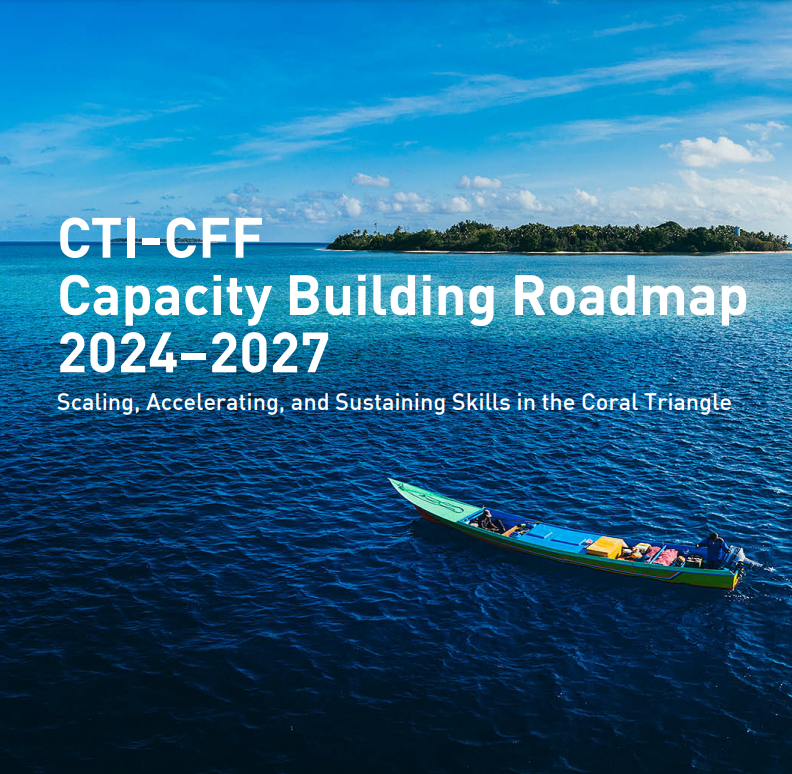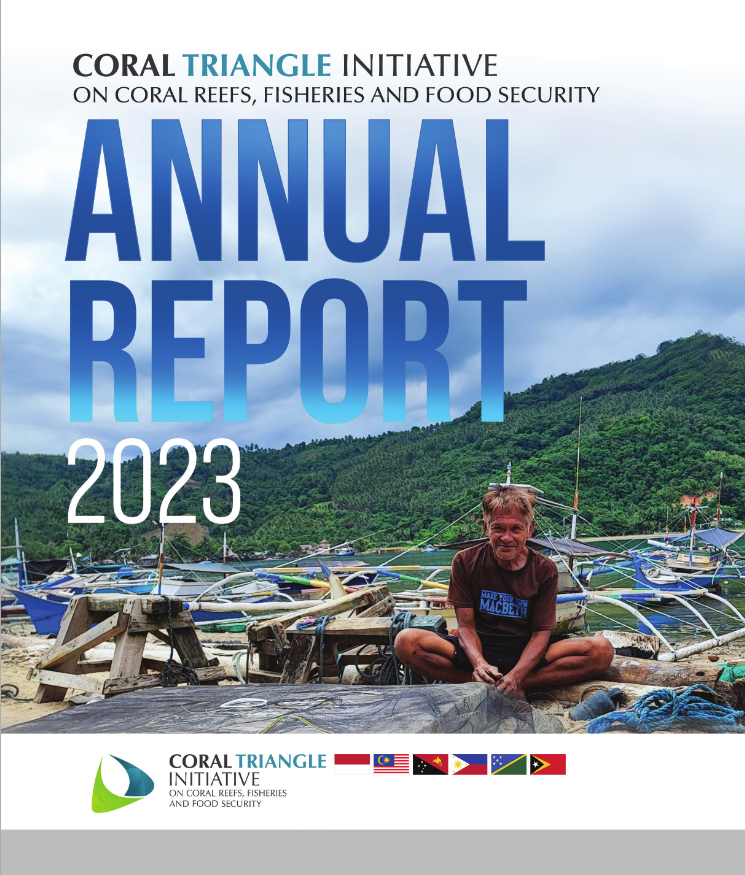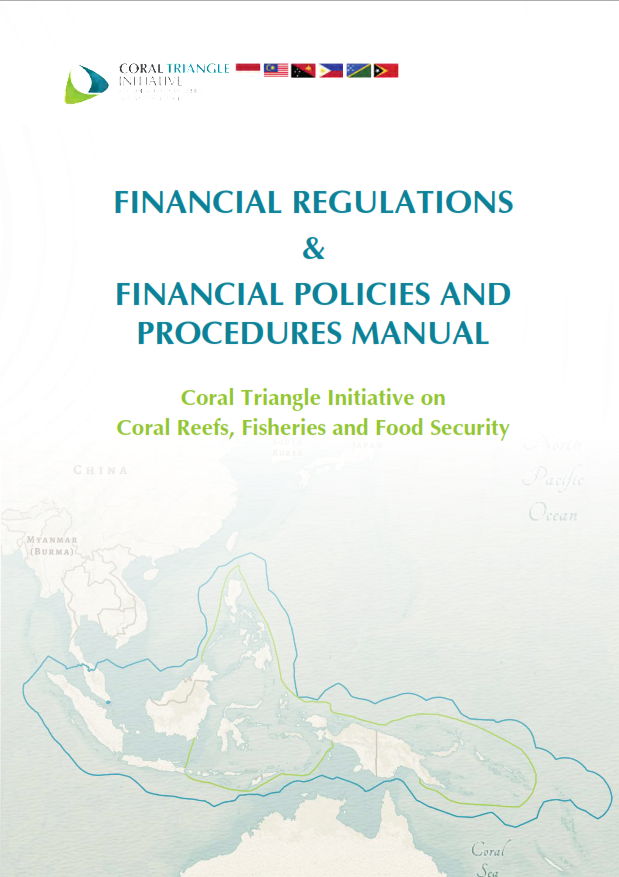Coral Triangle Countries Eye New Public and Private Partners in Upcoming High-level Roundtable
PRESS RELEASE
MANILA, PHILIPPINES --- Ministers and senior officials of Environment, Fisheries, Marine Affairs, and Science from the six countries that surround the richest marine area in the world—known as the Coral Triangle (Indonesia, Malaysia, Papua New Guinea, Philippines Solomon Islands, and Timor-Leste) will meet with Finance Ministers for the first time at the High-Level Financial Roundtable on 3 May 2012 in Manila to discuss sustainable financing strategies to support the future of the Coral Triangle Initiative on Coral Reefs, Fisheries, and Food Security.
The initiative is a regional cooperation program between the six countries to sustain the wealth of marine and coastal resources in the Coral Triangle region. This geographical area stretching 6 million square kilometers across six countries nurtures the highest diversity of corals, fish, and marine life on the planet and sustains over 120 million people. The Triangle’s resources are in peril as a result of destructive fishing, overexploitation, poorly-managed coastal development, and potential impact of climate change.
Since it was launched in Manado, Indonesia in 2009, the six countries and a core group of development partners have been investing in the initiative to address crucial issues such as food security, climate change, conservation, and sustainable management. Thousands of coastal communities depend heavily on the coastal and marine resources of the Coral Triangle for food, livelihood, and their way of life. Without enough protection and preparation, they will be hit the hardest, soonest, and with the least capacity to respond to natural disasters such as tsunamis, storm surges, and floods as well as the effects of coastal degradation.
Leading environmentalists and political leaders have affirmed that spending now to preserve the health of coastal ecosystems like those in the Coral Triangle is a strategic move that will prevent far more costly expenses in the future. For instance, reefs of the Coral Triangle provide an estimated $2.3 billion annually in ecosystem services to people—including coastal protection. It is estimated that degraded reefs would cost governments between US$250,000 and US$15 million per kilometer of coast to replace the existing reefs and mangrove forests with man-made coastal defenses, according to Rod Salm, The Nature Conservancy's Director of Marine Conservation Programs for the Asia-Pacific region.
The roundtable, with the theme “Investing in the Coral Triangle Initiative for a sustainable future,” will be an opportunity to strengthen the engagement of finance and environment ministers by focusing on broad-based financial strategies that will address the long-term needs in carrying out the initiative’s prioritized plans of action. It will also be a venue to introduce the initiative to other development partners, civil society, and the private sector.
Malaysia’s Science, Technology and Innovation Minister Datuk Seri Panglima Dr. Maximus Johnity Ongkili, Chairman of the Coral Triangle Initiative Council of Ministers, supported the move to engage existing and new partners. He also put forward Malaysia’s proposal for the setting up of a Business Council within the initiative. The proposal has been earlier endorsed in a joint statement by participating countries at the 3rd Ministerial Meeting in October 2011 held in Jakarta, Indonesia.
“The establishment of the Business Council is timely as member countries have expressed the need to apply inclusive innovation and enhance private sector participation in sustainable development of marine resources through public-private-partnership,” he said.
Coral Triangle Ministers are expected to start a dialogue on how to mobilize resources from national budgets, leverage private sector investments, obtain development partner assistance, and develop other sustainable financing mechanisms, such as payment for environmental/ecosystem services.
Minister Ongkili’s participation in the roundtable is a significant step in providing leadership direction for the initiative. After he was elected during the 3rd Ministerial Meeting, he paid a ministerial visit to his Indonesian predecessor, Minister of Marine Affairs and Fisheries, Bapak Sharif Cicip Sutardjo in January to ensure smooth transition and pave the way to set up the Regional Secretariat. During his trip to Manila, he will discuss with Secretary Ramon Jesus P. Paje, Secretary of the Department of Environment and Natural Resources, sustainable financing for the initiative.
The roundtable will be followed by the Marketplace where the national coordinating committees will present priority projects with budgets to prospective development partners and other stakeholders. The marketplace will serve as a networking session – initiating conversations on resource needs of the countries and matching them with interested partners.
# # #
The High-Level Financial Roundtable and the Coral Triangle Initiative Marketplace are scheduled on 3 May 2012 at Meeting Rooms 2 and 3, Secretariat building, Philippine International Convention Center (PICC) in Manila from 3:00-5:30 pm. They are side events during ADB’s 45th Annual Meeting.
Reference
If you’d like more information about this topic, or to schedule an interview, please email Dr. Darmawan at darmawan@indo.net.id



